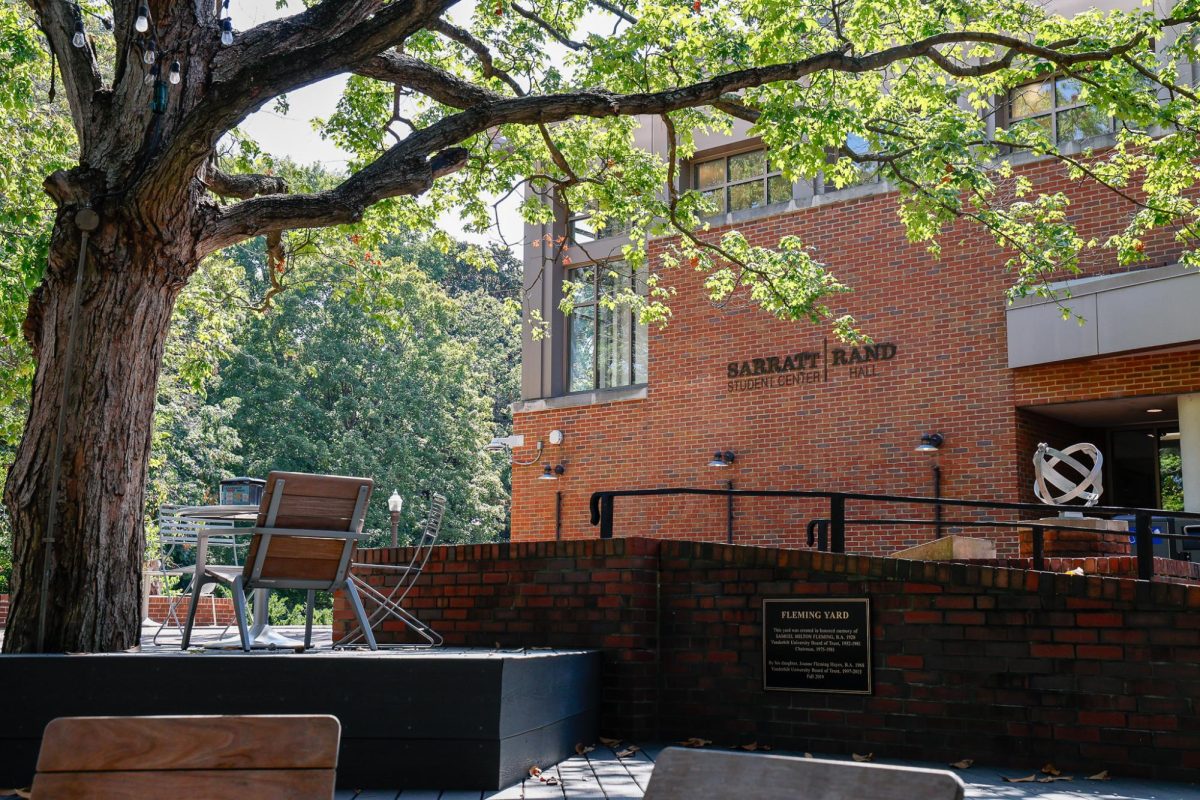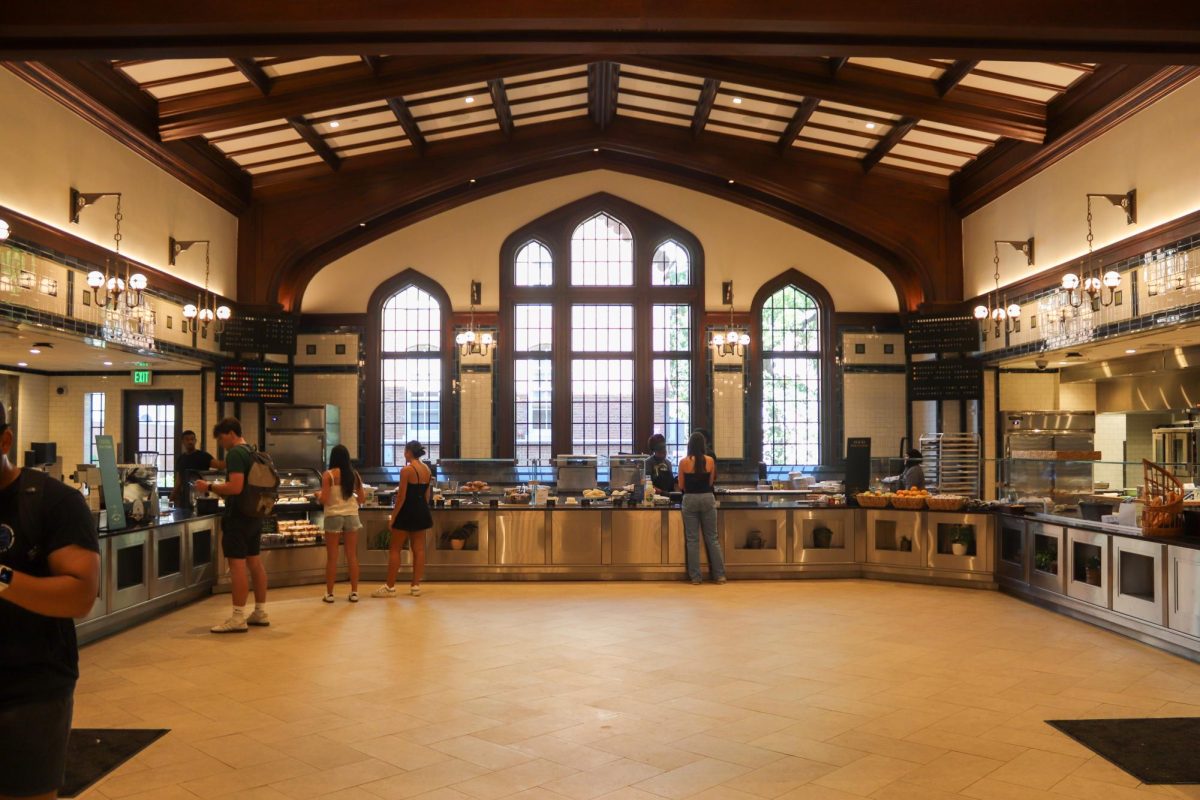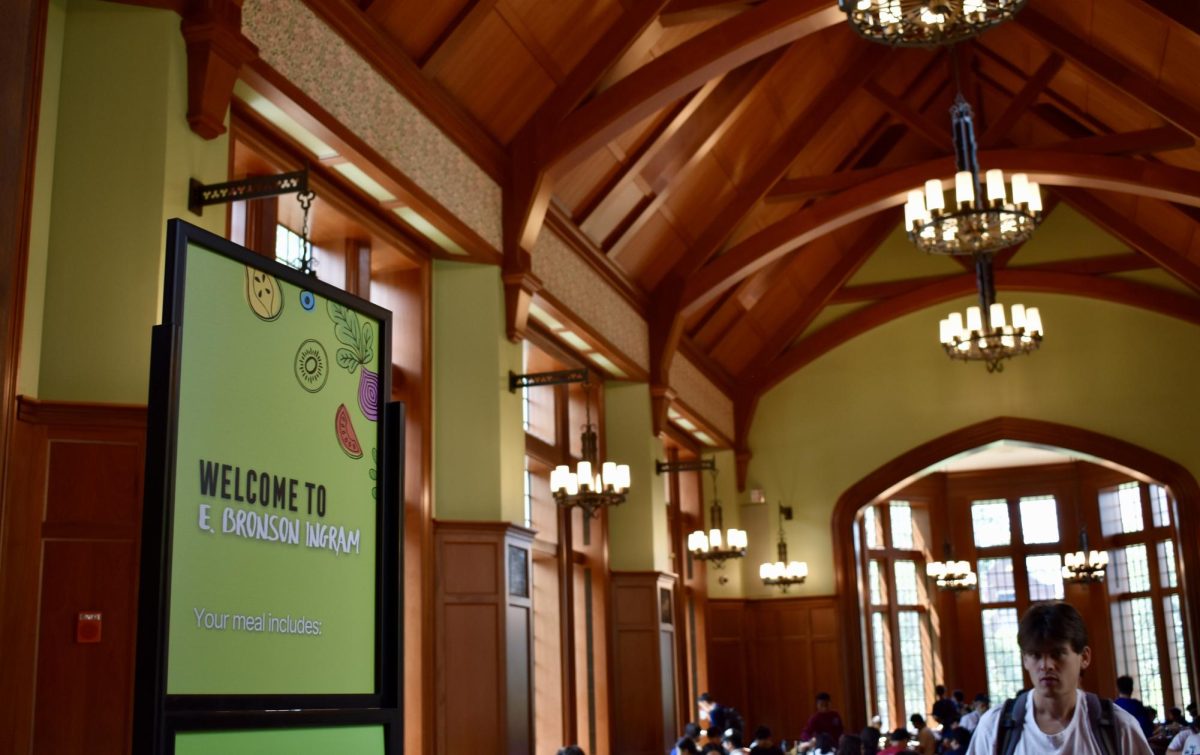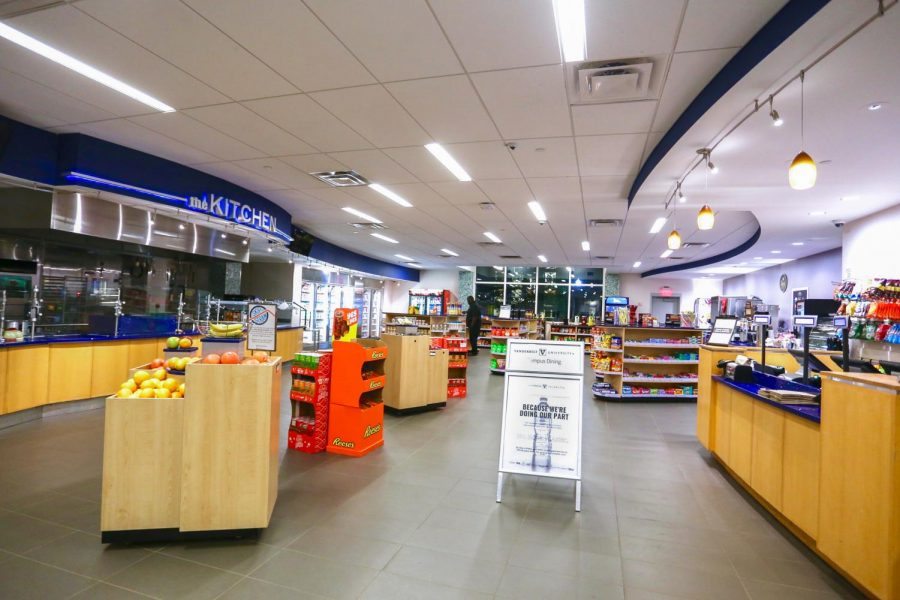Campus Dining implemented multiple changes to on-campus dining for the 2024-25 school year, including increased meal plan prices, the introduction of Cafe Carmichael and reduced hours of operation for Munchie Marts and residential dining halls.
These dining alterations not only impacted students, but also changed the dining staff’s weekly schedule and shift times. Student workers are among the most affected, as some report being asked to change locations and work additional hours to compensate for the changes.
Budget and meal plans
Campus Dining increased the price of meal plans for all students during the 2024-25 academic year. According to Campus Dining, the annual dining budget is funded in full by student meal plans.
“Vanderbilt Campus Dining is proudly self-operated and funded exclusively through meal plan revenue,” Campus Dining said in an email to The Hustler. “The meal plan price adjustment was driven by rising national costs of food and labor.”
Some students feel they are getting less value out of the meal plan this year compared to last year. Sophomore Hasan Aktas said he was content with on-campus dining last year but that the recent changes are not worth the price.
“[Campus Dining] is killing all of the loved dining options and downgrading food quality under the label of ‘sustainability and improvement,’” Aktas said. “I feel like all dining has to do is stop innovating and go back to how things were in the first semester of last year.”
Addition of Cafe Carmichael
With the completion of Oliver C. Carmichael College in June, Cafe Carmichael was introduced as a new dining option. The cafe is open Monday through Thursday from 7 a.m. to 9 p.m. CDT and Sunday from 10 a.m. to 9 p.m. CDT. Campus Dining said that this addition was anticipated and planned for accordingly.
“Adjustments were made within our operations to allow for us to open this new dining facility,” Campus Dining said. “Changes to Campus Dining have not had an impact on staffing or average shifts for dining hall employees.”
Isabella Backus, a junior who works at Local Java in Alumni Hall, said that staffing at Local Java was affected by the cafe’s opening.
“When Carmichael first opened, all the student workers at Alumni were asked to work [at Carmichael] instead, unless we really wanted to stay at Alumni,” Backus said. “A lot of student workers did go to Carmichael, and there were three or four student workers who could only work in the morning because of class. The Vanderbilt [dining] employees who have to be [at Local Java] all day were stuck running understaffed for the rest of day.”
During the first two weeks of Local Java’s operation, Campus Dining made changes to the cafe’s food options. Most of the sandwiches and pastries were removed, and the cafe primarily served beverages. Backus said that while the reasoning behind the reduced food selection was not officially communicated to the employees, she believes it was related to the opening of Cafe Carmichael.
“It was heavily implied that the [pastries and breakfast sandwiches] were moving to Carmichael in order to make students go there instead,” Backus said. “[Campus Dining] took away some of the Alumni food and moved it to Carmichael, and they also moved some of the staff there.”
Backus said the opening of Cafe Carmichael put a strain on staffing other dining halls, particularly when it comes to student workers.
“Carmichael is 100% siphoning student workers because they spread whatever dining workers they had from last year out so thin in order to accommodate for [its opening],” Backus said. “It makes sense that places are understaffed now because [the university] is not hiring permanent dining staff to fill those roles.”
Senior Allison Miller echoed these frustrations about the prioritization of the new cafe over improvements to other residential dining halls.
“The addition of yet another cafe instead of investment into existing dining disgusts me,” Miller said.
Hours of operation
Campus Dining reduced the weekly hours of operation for residential dining halls and Munchie Marts. Last year, the Commons Dining Center and E. Bronson Ingram, Rothschild and Nicholas S. Zeppos Dining Halls were open continuously from 7 a.m. to 9 p.m. CDT on weekdays and 9 a.m. to 9 p.m. CDT on weekends. This year, EBI, Rothschild and Zeppos no longer serve breakfast in the mornings and are closed on Saturday. Munchie Marts also close one or two hours earlier on average, depending on the location.
Rand Dining Center was opened on Saturday to compensate for the closing of residential dining halls. After Campus Dining received student feedback about the lack of dining options on Saturdays, Local Java, Vandy Blenz and Wasabi were also opened during select times.
Despite the changes in hours, Campus Dining confirmed that employees’ shift times have remained consistent and that breaks are provided in accordance with staffers’ hours.
“A standard shift for a Campus Dining staff is eight hours,” Campus Dining said. “A lunch break is provided for any staff member who works a shift of six hours or more, with additional break opportunities provided.”
Impact to student employment
Employees’ shift and break lengths set forth by campus dining are compliant with Tennessee’s labor laws, which require that a 30 minute unpaid meal or rest period be provided to an employee who is scheduled for six or more consecutive hours. However, this law exempts workplaces that “by nature of their business” provide ample opportunity for rest breaks, which can include the food and beverage industry, as per Tennessee’s Department of Labor and Workforce Development.
As a student worker, Backus said that her weekly hours have not changed significantly from last semester, as her schedule at Local Java is contingent on her academics. Undergraduate dining employees are required to work a minimum of four hours per week and are limited to working a total of 19 hours per week.
“I usually work a two, three or four hour shift during the week, depending on my schedule, which I set in the summer,” Backus said. “If I need to adjust [my schedule], I can — I just need to talk to the management and work it out. But they understand that my education comes first.”
Backus also noted that Local Java’s work environment has remained relatively similar to last year in spite of recent dining changes. Backus said that while she is provided a break, it is not strictly enforced.
“Now that the food is back at Alumni, it pretty much runs the same as last year, except for some staffing issues,” Backus said. “I was always given a 15 minute break, but sometimes if you’re busy, you’ll forget to take one. Also, if you’re understaffed, you won’t typically take a break, unless you advocate for yourself.”
Backus said that the most significant change in her weekly schedule occurred when Local Java opened on Saturdays in order to combat overcrowding at Rand.
“Sometimes [the Local Java employees] will get asked to work whenever the cafe is short-staffed,” Backus said. “When Alumni opened on Saturdays, [Campus Dining] told us that ‘all of our regular employees can’t work on Saturdays. What students can work?’ And [the employees] were like, ‘you didn’t ask if we were available on Saturdays.’ There seems to be a disconnect with communication between dining and employees.”
Changes for university employees
In contrast to student workers, dining staff employed by the university are full-time employees who can work up to 40 hours per week, with some opportunities for overtime work. Constance Harvey, a dining employee at EBI, said that the staff’s hours remained consistent despite dining changes.
“We typically work 36 to 40 hours a week, depending on [the employees’] job and what’s needed in a particular week,” Harvey said. “This hasn’t changed from last year — the only difference is that we no longer work on Saturdays, and we’re no longer serving breakfast during the week. This means that workers have different shifts than last year, but their weekly hours have stayed the same.”
Harvey said that a typical shift is seven hours per day, and the staff are provided a combination of paid and unpaid breaks.
“Once you work more than six hours, you’re entitled to a 30 minute break,” Harvey said. “During that break, we’re given a meal, and we have to clock out. We also get two paid 15 minute breaks, and we can’t leave the building during that time because we’re on the clock.”
Harvey said that overall, the dining changes have not had a significant impact on her schedule, and she believes that most of her coworkers agree.
“I’m personally glad to not work on Saturdays,” Harvey said. “Some people had to change building locations [i.e. moving from EBI to Rothschild] with the new schedule, but the people I’ve talked to have been doing fine. I do feel for the students who have dealt with the changes, but I’m wondering if this is trial and error on dining’s part, and [Campus Dining] is trying to see what works.”












